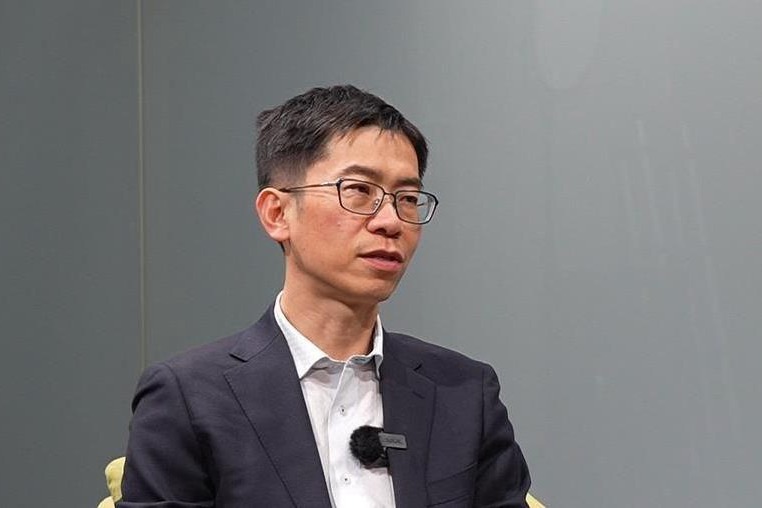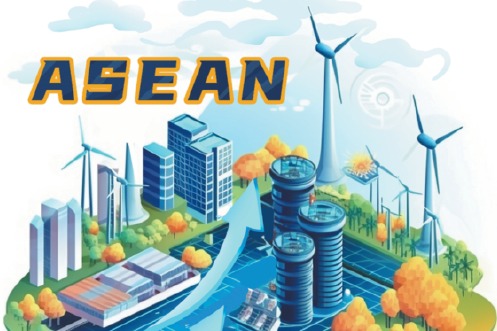Three-dimensional power play


The relationship among China, the US and Europe will have a direct bearing on the outcome of Washington' anti-China strategy
Europe plays a crucial role in shaping the strategies of both China and the United States, and it will have an important bearing on the future direction of China-US strategic competition.
Over recent years, the European Union has repeatedly stressed that despite being a competitor and systemic rival, China remains a necessary cooperation partner of Europe in many areas, and it is in Europe's interests to maintain a sound relationship with all major countries, and vice versa. Given the EU's status as a key partner both China and the United States are wooing, most countries in the bloc are trying to avoid taking sides in the China-US rivalry, and make national policies based on their own interests.
In ideology, most European countries share a similar stance with the US, and it can be anticipated that the EU will continue to accuse China of so-called human rights abuses. However, Europe has a complex political structure. The European Parliament has approved many resolutions — most of which are not legally binding — that meddle in China's domestic affairs. In contrast, the European Commission adopts a more rational and pragmatic policy toward China.
As for security, most European countries, as traditional military allies of the US, will maintain close coordination and communication with the US on security issues. In the Asia-Pacific region, European countries are expected to enhance their military presence to support the US' "Indo-Pacific strategy "through sending navies to the West Pacific or holding joint military exercises with regional countries.
In terms of economic ties, some European countries will maintain their sound trade ties with China. Yet despite the growing China-Europe investment and trade volume, the two sides' cooperation in some industries will be subject to restrictions. In addition, China will find it difficult to collaborate deeply with Europe in cutting-edge technology fields such as 5G and artificial intelligence, and in the construction of key infrastructure due to influence from the US on the pretext of "security concerns". More importantly, major European countries are trying not to take sides between China and the US.
Take ideological issues for instance. The parliaments of some European countries' support for Taiwan based on the so-called shared values of human rights and freedom, which can be seen as a display of political correctness, showed a disregard of Beijing's stance that Taiwan is an inalienable part of Chinese territory, thus hurting their relations with China. Over recent years, some small countries such as the Czech Republic and Lithuania have provoked China by sending officials to visit Taiwan and setting so-called "representative offices" in the island region, which gained support from the EU, reflecting the "value-based alliance" between the EU and the US. But can the European parliaments' stance on human rights represent the stance on sovereignty of the majority of the international community on the Taiwan question? The answer is no.
Annalena Baerbock, the new foreign minister of Germany, was slammed by the head of Germany's National Olympic Committee for saying that Europe might boycott the 2022 Beijing Winter Olympics before changing her attitude. French President Emmanuel Macron also explicitly said the Olympics should not be politicized. This is the rational message Europe should send to the rest of the world.
The above-mentioned examples suggest that some small countries, the European Parliament and some national parliaments tend to make irrational decisions due to their focus on ideology and values. Major countries in the bloc formulate their policies based on a more complex consideration. Wary of irritating either side of the China-US rivalry, they try to avoid taking sides by adopting cakeism — to have their cake and eat it too — in a bid to maintain a balance in their relations with the two superpowers and choose a position that best suits their own national interests.
China and the US are locked in long-term competition, which will shape the historical process of China's rise as well as the global landscape in the 21st century. Since Joe Biden took office as US president, Washington has attached top priority to wooing Europe to tie the bloc to the US' anti-China bandwagon. The evolution of their trilateral ties will have great impacts on the China-US strategic competition.
China needs to view the strategic rationale of Europe from a medium- and long-term perspective, and expand and cement its cooperation with European countries in areas such as global governance, trade and commerce. To solve the thorny problems in China-Europe ties, China should properly manage its disputes with Europe and avoid giving the US the opportunity to exploit any rift between China and Europe. Four principles should be followed in managing relations and addressing hot spot issues.
First, China should ensure the stable development of China-Europe trade and economic cooperation, which is the ballast stone for bilateral relations. In 2022, China overtook the US as the EU's largest trading partner, and 27 members of the bloc saw an increase in two-way cargo trade with China during the COVID-19 pandemic. As China-US trade frictions persist, China and Europe expanding their market to each other helps diversify their economic partners, and boosts the inter-dependency between the two sides.
Second, China should acknowledge the two sides have ideological differences and avoid aggravating the tensions arising from these or letting them spill over into other fields. It should take a more comprehensive and flexible approach in handling any differences with European countries.
Third, China needs to understand the legitimate security concerns of Europe, and improve dialogue and risk control mechanisms. Although European countries including France have aligned themselves with the US in its "Indo-Pacific strategy", they are essentially pursuing Europe's own interests, rather than blindly following in US' footsteps. The AUKUS alliance betrays the divergences between the US and Europe as well as differences between the United Kingdom and Europe. Therefore, it is a viable strategy to treat Europe and the US in a different manner under the premise of ensuring national security and sovereignty.
Fourth, since Europe needs China's help in solving many global problems, China should expand and deepen multilateral collaboration with Europe. In the international system with the United Nations at the core, China should seek to team up with European countries to defend multilateralism, and advance common development so as to counter the US hegemony, increase China's international influence, and achieve win-win cooperation for China and Europe.
The author is dean of the School of International Studies at Nanjing University. The author contributed this article to China Watch, a think tank powered by China Daily. The views do not necessarily reflect those of China Daily.
Contact the editor at editor@chinawatch.cn
































